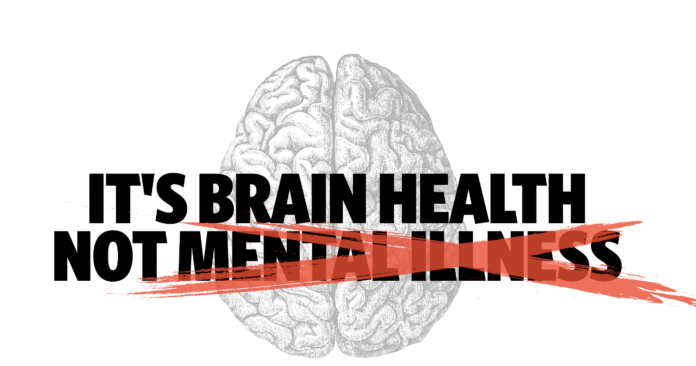By Debi Butler
May is National Mental Health Month. No one knows that better than the one out of five Americans who are touched by brain illnesses. We must pay attention to these illnesses and change the language we use to describe them – the negative language and the resulting stigma – that surrounds ‘mental illness’.
In 1985, my brother Steve was diagnosed with schizophrenia. The stigma of that title impacted him very negatively, and I watched him hide from society because he did not feel like he belonged. The stigma surrounding mental illness can be as detrimental to someone’s life as the disease itself. It can be very isolating. As a society, we need to change our thinking and our words. They are powerful, and words really do matter.
In 2017, I founded a statewide grassroots effort called Brain Health Now, to raise awareness for the needs of and solutions for brain health issues in Iowa. The words that have been used for so long, like “crazy”, “psycho”, “mental illness”, “mentally ill” and “wacko” are negatively impacting all of us and preventing many from seeking the care they need. Our brain is an organ and gets sick, just like other organs. By reframing our conversations and using the words ‘brain health’ instead, we can normalize those conversations and get rid of the stigma that surrounds these illnesses. Changing the language is a big and important first step.
As an organization, many volunteers have come together and worked so hard to create and share the message about changing our language and eliminating stigma. In these last five years, we have had an unbelievable response from people all over the state. What we are doing is actually working. It’s actually changing our culture and normalizing how people talk about and think about brain health. This movement has given people hope that they can reach out for help and receive it without feeling isolated or marginalized.
We’re proud to collaborate with many different stakeholders, including businesses, colleges and universities, Mental Health and Disabilities Services of Iowa, healthcare providers, school districts, law enforcement, the judicial system, legislators, and countless direct care providers to strengthen the network of support services for adults and children with all types of brain health issues.
I am hopeful that someday soon we will not use the words ‘mental illness’ any longer. For individuals and their families, this will lead to a more normal way of life. A more inclusive way of life. A way of life that’s free from stigma. A way of life that includes being comfortable when seeking care for our brains, just like we would seek care for any of the other organs in our body that are sick and need treatment. We need to change the language today. You can be part of this movement.
Be the change. Start today with yourself and your own words. Use ‘brain health’ in your everyday vocabulary. Change your perceptions and it will change our state, our communities, our friends, loved ones and neighbors. We really can end the stigma.
Visit brainhealth-now.org to learn more.
Butler has a master’s degree in psychology, loved ones with brain health issues, and is the founder of Brain Health Now. She lives in Dubuque.











